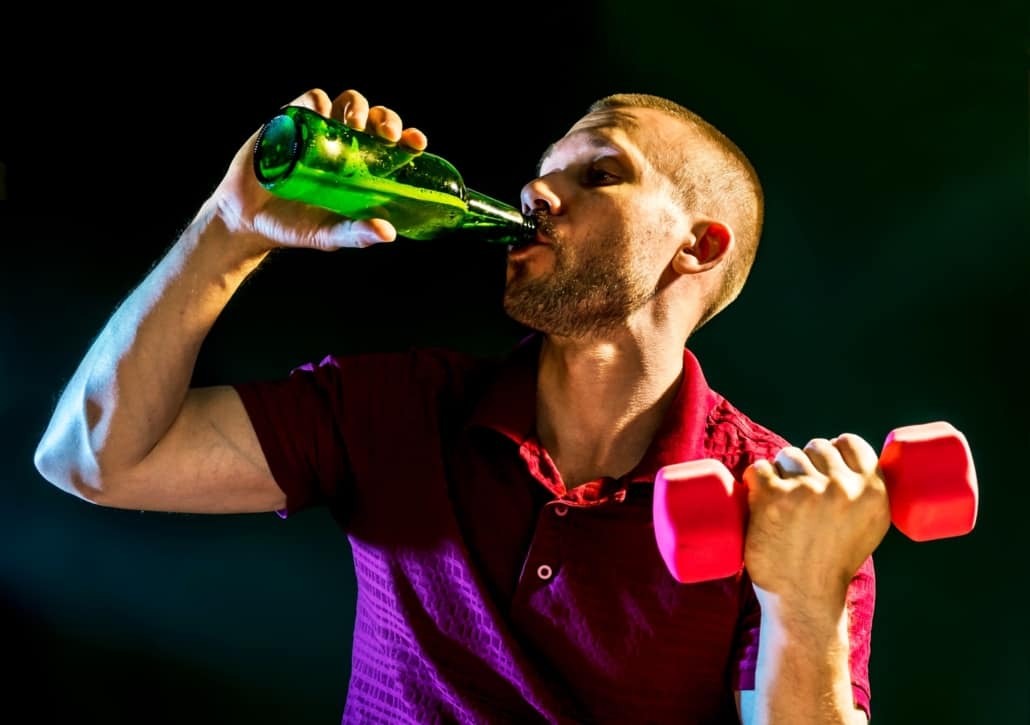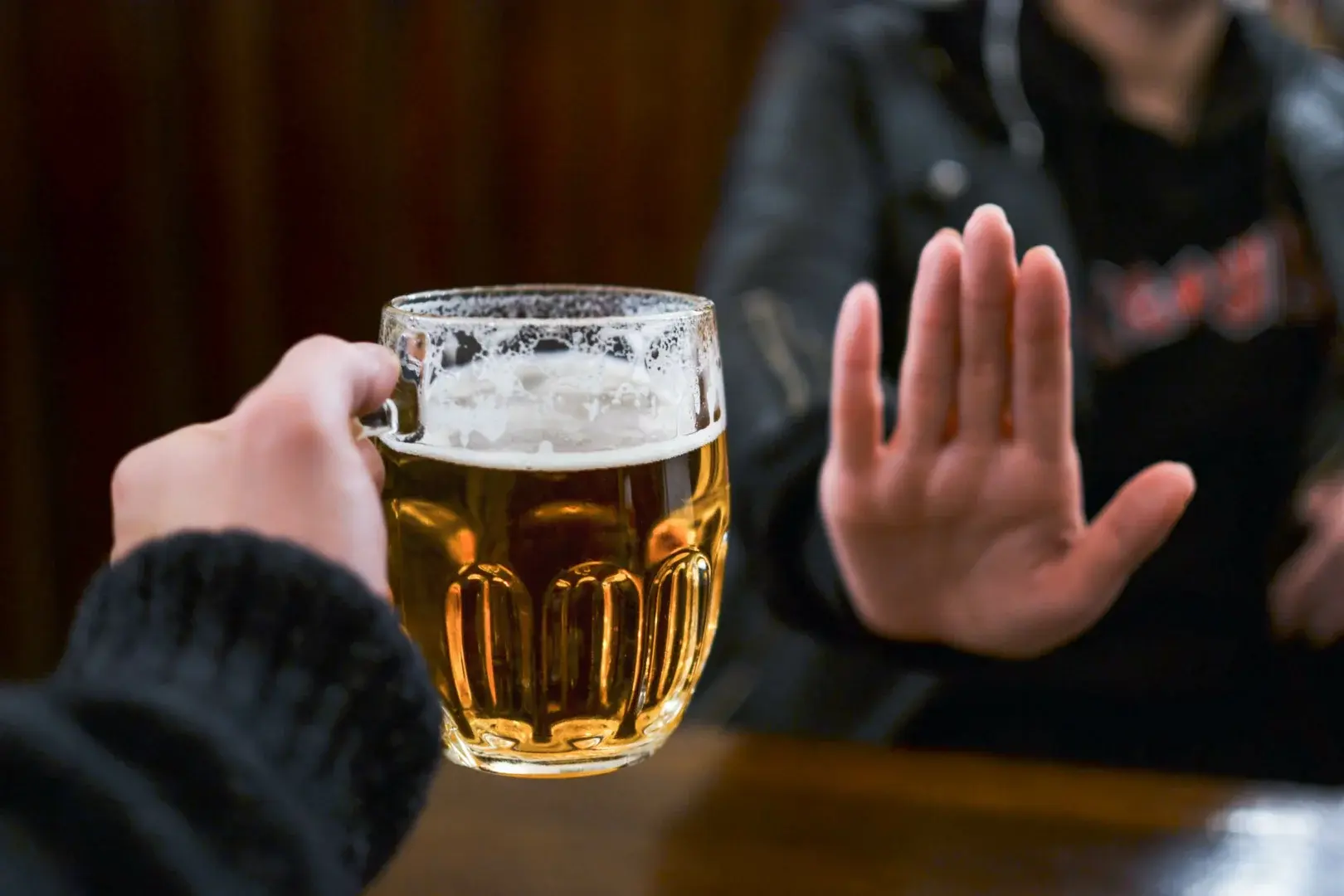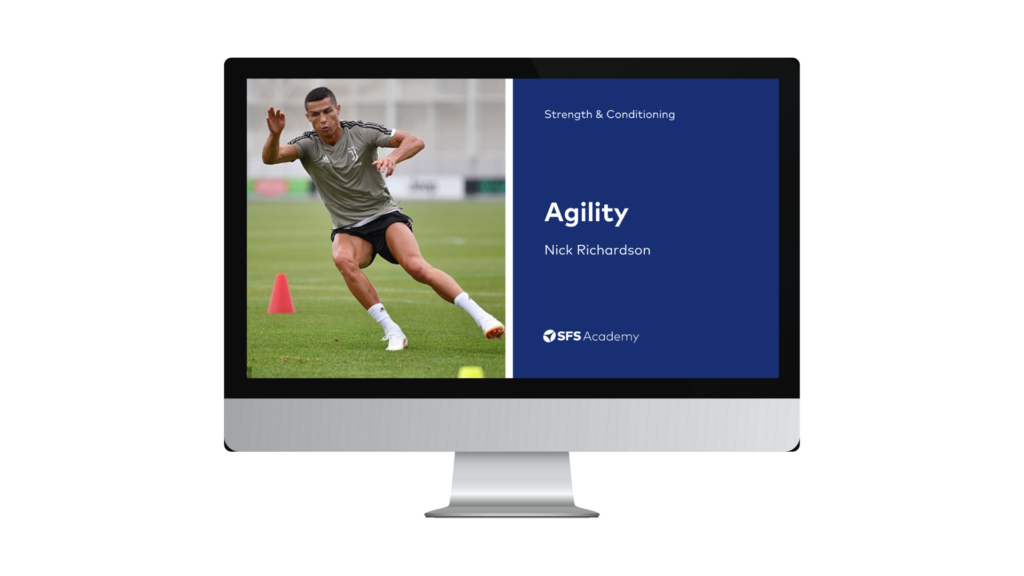What impact does alcohol have on athletic performance?
Many people and athletes choose to consume alcohol but what exactly does the science say in terms of its effect on performance, recovery and nutrition?
Alcohol and athletic performance: cheers to that! Or maybe not…
After 120 minutes of fierce competitiveness and palpable tension, the score is tied. The European Cup final will be decided in the tensest possible way – the dreaded penalty shoot-out. To make matters even worse, you’re the goalkeeper. After a rollercoaster of emotion filled with a world-record number of loop-de-loops, it comes down to one final kick. As you bounce up and down on the goaline preparing to make the most important decision of your football career, you gaze into the 19-year-old midfielder’s eyes standing opposite you. You can see the hope of an entire nation weighing heavy on his mind. He’s going right. Within a split second, you’ve lunged to your left and swatted that ball away as if it were a blowfly stunned in mid-air by fly spray. Pure elation ensues. It’s time to crack the beers and pop the champagne to celebrate. Surely a few drinks won’t do any harm after such a historic win, right?
It was pretty evident that the Italians were celebrating with a few beers after their win over England. Beer in hand, Leonardo Bonucci even said in his post-match interview he would “drink everything tonight”. With my background in rugby, I have also seen many players consume a beer or two in the changing room after a normal win on a Friday night. Not to mention weekend drinks outside of team responsibilities.
But, is alcohol bad for athletic performance and recovery?

A brief whistle whetter
In 2006, Ronald Maughan and Susan Shirreffs published a manuscript in the American College of Sports Medicine titled: The Effect of Alcohol on Athletic Performance. Unsurprisingly, they state within the first line of their introduction that: “alcohol is not an essential part of the human diet … although regularly consumed by a large part of the world’s population”. A large chunk of this consumption could have been the 13 million pints (1,000 pints ordered every second) consumed by England fans during the final of the European Championships.
While alcohol is a significant source of energy — providing 7kcal per gram (carbohydrate and protein = 4kcal per gram and fat = 9kcal per gram) — it is not the preferred choice to fuel athletic performance. Carbohydrates are much better at fuelling the body than alcohol. In fact, alcohol has been shown to impair performance of endurance exercise mainly because of the effects on metabolic, cardiovascular and thermoregulatory function. These are all physical performance variables, but what about the cognitive performance variables of reaction time, fine motor control and levels of arousal and judgment? Yep, you guessed it, all of these are impaired during training and competition as a result of alcohol consumption too.
On the front line, any athlete who needs to perform intense physical activity and make decisions under pressure should not be consuming alcohol pre-competition. Put simply, this will not help performance.
A shot of science
Let’s dive a little bit deeper into the effects of alcohol on human physiology. Alcohol consumption inhibits the role of calcium within skeletal muscle, mainly leading to the impairment of excitation-contraction coupling and decreasing strength output. Additionally, alcohol consumption may compromise the integrity of skeletal muscle cells resulting in a greater rise in creatine kinase, which is a marker of muscle damage. In regard to thermoregulation and hydration, early reports identified alcohol as a potent diuretic, where a 10mL excess urine production was evident following each gram of ethanol consumed. Alcohol can also act as a peripheral vasodilator (these are chemicals that cause your blood vessels to widen, increasing blood flow to the outer parts of your body) resulting in increases in fluid loss through evaporation and causing even further dehydration.
For an athlete who needs to maximise glycogen usage for performance (remember back to biology 101 – glycogen is the fuel for our muscle, like petrol in a car), I’m afraid alcohol isn’t going to do you any favours considering it reduces muscle glycogen uptake and storage. In simple terms, alcohol will reduce your ability to use glycogen as an energy source for performance.
The knock-on effect of alcohol consumption is it is also detrimental for protein synthesis. Protein synthesis is the process of cells making proteins and is super important for muscle growth, adaptation and recovery. In particular, alcohol consumption results in poorer muscle recovery after exercise. The reason for this is because fuel is important for muscle recovery, and so in combination with its direct effect on protein synthesis, alcohol hampers fuel availability resulting in sub-optimal recovery.
Finally, in regard to the neurological effects of alcohol, it is well accepted that it acts as a depressant and reduces central nervous system excitability and activity. For those who do enjoy a drink, you will know what this feels like the day after drinking – you feel sluggish, struggle to make decisions and sometimes feel irritable. Alcohol is also dose dependent, so the more you drink, the worse your balance, reaction time, visual search, recognition, memory and accuracy of fine motor skills become. The next time you are trying to search out and remember the name of the person you met at the bar, think about how alcohol is going to hamper your chance of a successful outcome to this situation. So the next time you have an important training session or game, reconsider your idea of “just having one”.
Impact on athletic performance
When considering how alcohol affects athletic performance, again let’s dive a little deeper.
Interestingly, earlier studies on aerobic performance and 5-mile treadmill time trials found no significant consequence of alcohol on performance. Contrastingly and not surprisingly, literature does show detrimental effects on endurance performance. What has been agreed is that a threshold exists whereby alcohol intoxication of 20mmol/L of ethanol results in performance decrements. To put this into more practical terms, the legal limit for driving is 0.05% of blood alcohol content circulating in the blood. This equates to 11mmol/L which is slightly lower than the threshold mentioned above. So, think about the last time you may have had one pint and then driven your car, but on reflection felt like you shouldn’t have because you felt a little light headed!
In regards to anaerobic performance, there has only actually been one study which has investigated and shown a negative effect of alcohol on sprint performance. The main take home from this study conducted with five sprinters was that alcohol dosage has a detrimental, albeit inconsistent, association with sprint performance. This was only measured over an acute window, though, and did not look at how intoxication may affect performance over a chronic period of time, for example, a two- or three-day hangover. Interestingly, more recent research actually shows no change in strength or power characteristics following acute alcohol ingestion.
Implications for recovery
One of the key areas to think about when it comes to exercise recovery is muscle damage and associated inflammation. This may be from training or competition – either way it’s important to consider.
As mentioned earlier, one of the main markers which have been investigated in the literature is creatine kinase (CK). At present, acute ingestion appears to have very little impact on exercise-mediated muscular damage. CK is highly variable between individuals and may not be the best marker to assess in this situation – better markers to measure are the circulating levels of pro-inflammatory cytokines. Following exercise stress, muscle damage and subsequent inflammation, cytokines are released into the circulation in an attempt to start the muscle recovery process. The inflammatory processes appear to be influenced by both chronic and acute alcohol use – not good news if you are an athlete (or know of athletes) who consumes alcohol frequently. Essentially, routine consumption will promote high circulating levels of pro-inflammatory variables.
Practically, I think there’s a fine line between allowing an athlete to celebrate a good win, and going overboard so much that it then disrupts their recovery from exercise. When I used to work in rugby, it was a simple rule of a bottle of beer in the changing room post-match to celebrate a win.
I really like the way Luke Vella and David Cameron-Smith summarise their thoughts on alcohol, athletic performance and recovery in their 2010 paper. Essentially, they say how both the effects of alcohol on human physiology and the parameters that determine athletic performance are multifactorial and extremely complicated. The literature shows there are many adverse symptoms caused by acute alcohol ingestion. However, the notion that alcohol consumption affects performance has not received enough consistent validation to advance beyond being anecdotal.
Nevertheless, just because the negative influences of alcohol on performance are not well understood, it does not mean that its use prior to, or following, competition is recommended! Something that is pretty interesting to know is the current data demonstrates a severe lack of analysis on the possible detrimental action of alcohol in the recovering athlete. So basically, although as practitioners we know that we shouldn’t really be advising athletes to consume alcohol, we actually don’t know the full effects of it on recovery.
One thing we can be sure of is the available evidence in both cellular and rodent-models. Based on this literature, we can be confident that athletes should remain wary of ingesting alcohol following intense exercise, focusing instead on effective dietary strategies proven to enhance recovery.

My shout…
In regards to dietary strategies for the athlete, it is amazing how many players I have spoken to about the “hidden” calories in alcohol. For example, a rum and coke (185kcal), craft beer (350kcal) and a Pina colada (526kcal) can all be very easily consumed, without consideration for the actual calorie content of each drink. From my experience, many athletes have no problem meeting up with their friends to sink three or four pints (around 1000kcal). Surprising, right? But, when four or five chocolate bars (the name of which is a planet and rhymes with cars) are put in front of them and they’re told to eat them all, they question the instruction and generally mention that it is unhealthy and will not help with their body composition goals. What’s funny about this is that they both have roughly the same calorie content.
My point here is, it is important to understand that calories are also in liquid beverages just as much as they are in food! So, next time you’re out on the town, think about your drinks as multiple chocolate bars and consider how it might affect your energy balance.
…and one for the road
Ps. here is a nice infographic which summarises this blog well.
[optin-monster slug=”nhpxak0baeqvjdeila6a”]



